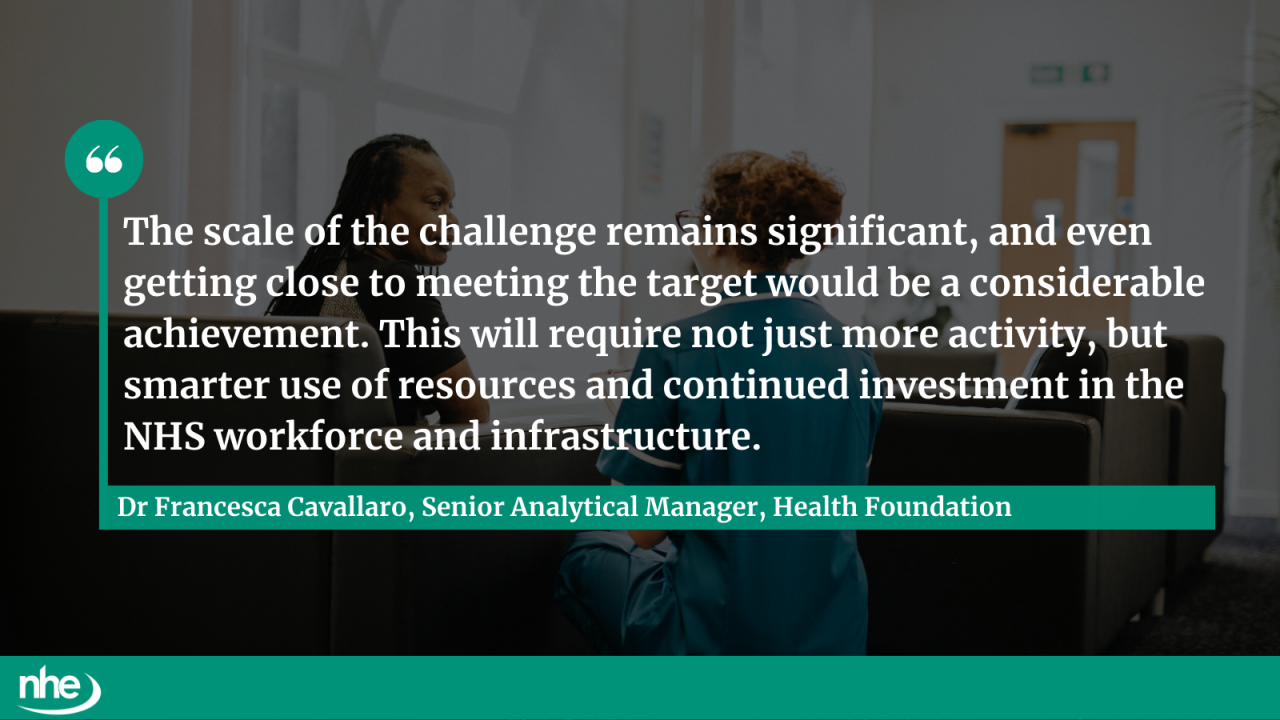The UK government is making significant progress in reducing elective care waiting times, but is on course to fall just short of its key health pledge to restore the 18-week treatment standard, according to new analysis from the Health Foundation.
Reducing waiting times has been a top priority since Labour came to power, with a commitment to ensure 92% of patients wait less than 18 weeks by the end of the Parliament. Backed by additional funding and a new elective care recovery plan, the strategy includes expanded use of the independent sector, surgical hubs, and community diagnostic centres.
Progress so far includes:
- Waiting list fell from 7.6 million to 7.4 million in the Government’s first year
- Percentage of patients treated within 18 weeks rose from 58.8% to 61.3%
- Referrals increased by 1.5%, while removals grew by 2.3%
Projections for 2029 are that Waiting list are expected to fall to 4.7 million, with 92% of patients projected to wait less than 20.3 weeks – just short of the 18-week standard.
There are a number of things that pose risks to further progress, with these including rising referral rates, unreported removals from waiting lists, and further industrial action.
Senior Analytical Manager at the Health Foundation, Dr Francesca Cavallaro, said:
“The government has clearly made progress in reducing NHS waiting times. But on current trends, our analysis shows that the NHS would just fall short of meeting the 18-week standard by the end of the parliament.
“The scale of the challenge remains significant, and even getting close to meeting the target would be a considerable achievement. This will require not just more activity, but smarter use of resources and continued investment in the NHS workforce and infrastructure. And there are several factors that could hold back progress, including if future referrals rise faster than expected and the potential impact of further industrial action.
“Placing so much emphasis on the 18-week target risks slower progress on other key issues, such as improving access to GPs, which we know is the public’s top priority for the NHS.”

The Health Foundation has warned that while the government’s efforts are yielding results, further action is needed to meet its headline pledge and ensure patients receive timely care. The analysis also highlights the importance of accurate data, workforce stability, and continued investment in elective recovery.
Image credit: iStock



















